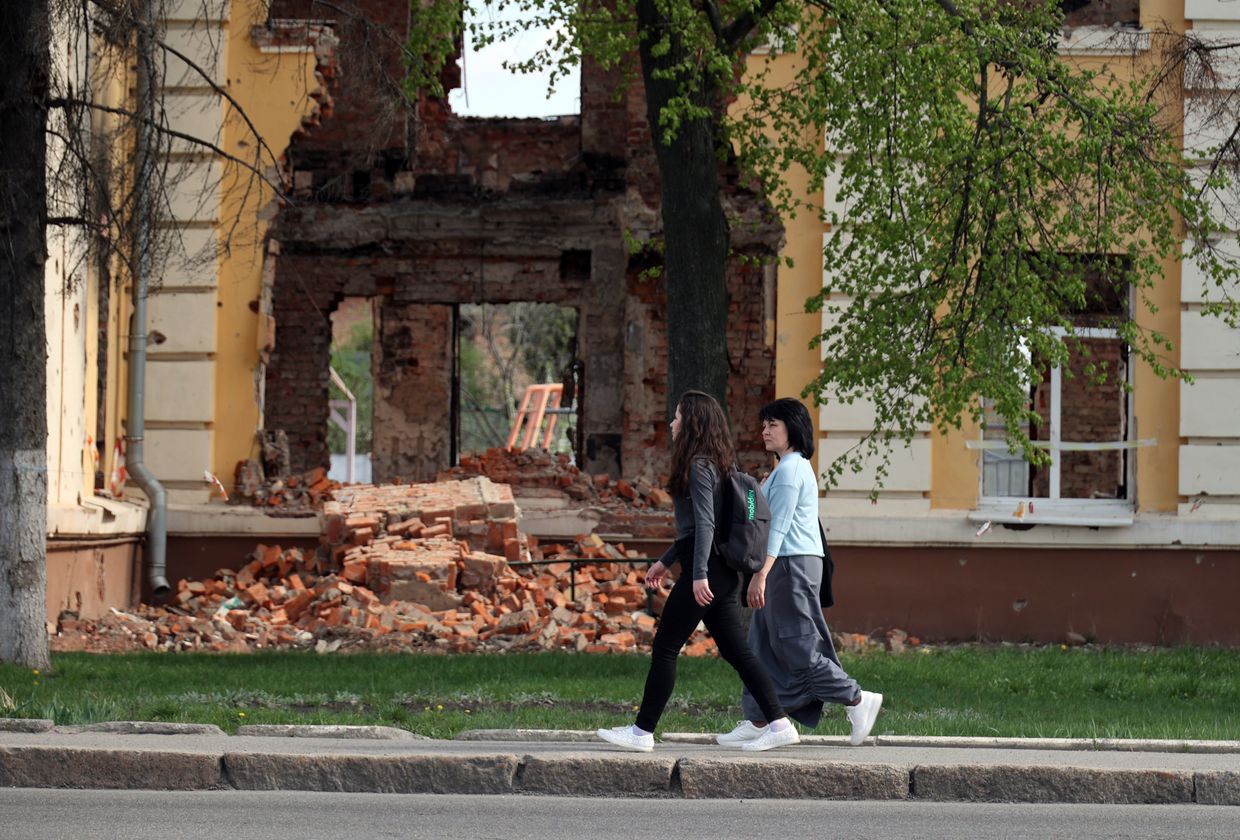UPDATE: Russian attack on city in Kharkiv Oblast injures at least 11

Editor's note: This is a developing story.
Russian forces attacked the city of Balakliia in Kharkiv Oblast, injuring at least 11 people, local authorities reported on April 25.
Settlements in Ukraine's northeastern Kharkiv Oblast suffer from daily Russian attacks due to their proximity to the front line and the border with Russia.
Kharkiv Oblast Governor Oleh Syniehubov said that Russia struck the area near the railway station.
At least seven people, including three women, aged 37, 47, and 60, as well as four men, aged 39, 49, 49, and 62, were injured as of 5:20 p.m. local time, according to Syniehubov.
Ukrainian Railways' press service also reported that at least three of its workers were wounded due to the Russian attack on Kharkiv Oblast.
The regional governor said that all the injured were hospitalized with blast injuries of varying severity. The victims were sitting in the passenger train Kharkiv-Izium when the strike happened, Syniehubov added.
At around 7 p.m. local time, the number of casualties rose to ten, as two women, aged 37 and 48, and a 55-year-old man were confirmed injured too.
The Kharkiv Oblast Prosecutor's Office reported at around 9 p.m. local time that 11 people were injured due to the attack. According to the Prosecutor's Office, Russia carried out the strike with Iskander-M ballistic missile.
Emergency services are working at the site.
Russia recently intensified attacks against Kharkiv and Kharkiv Oblast, using missiles, glide bombs, and drones to destroy energy infrastructure and kill civilians.
At the end of March, Russia destroyed all the electrical substations in Kharkiv, leaving Ukraine's second-largest city without a stable power supply.












